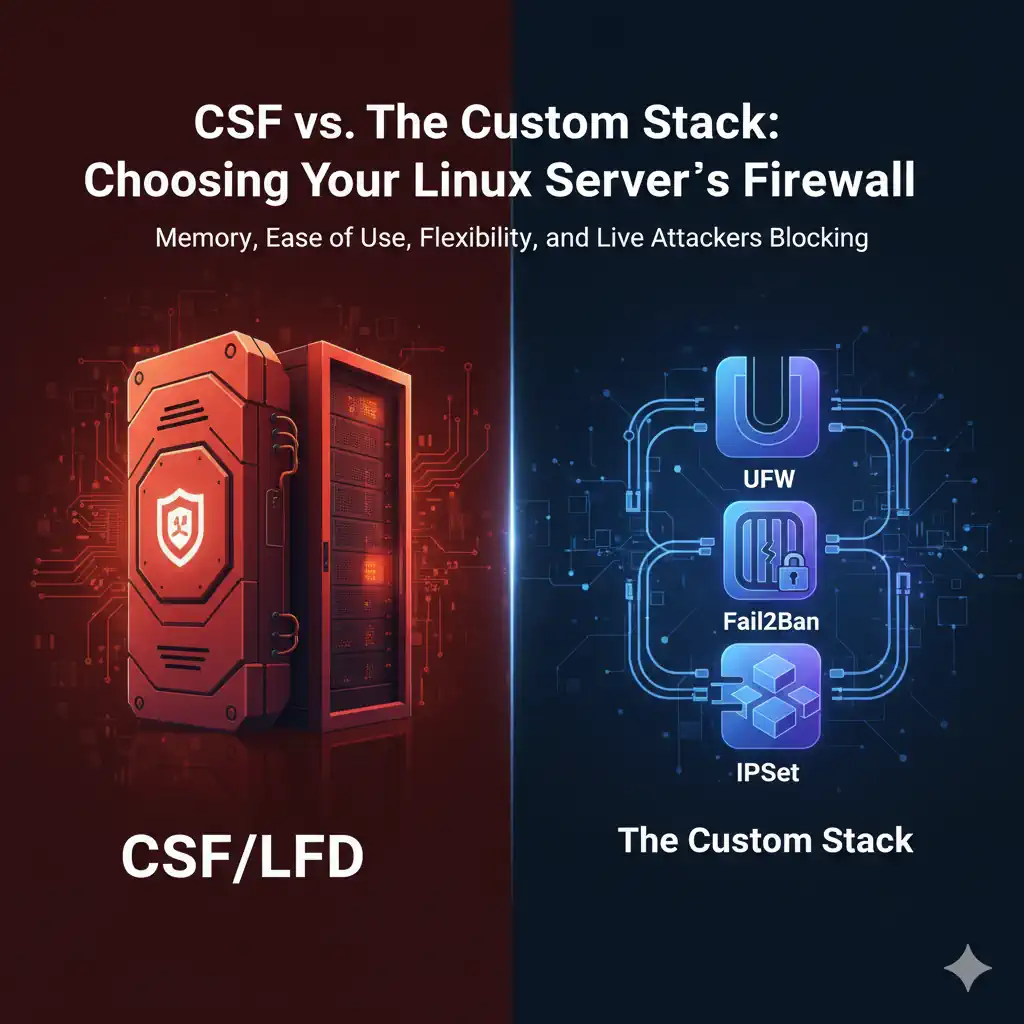🚀 VV_IPBan – UFW + IPSet + Fail2ban as alternative option
Securing your Linux server shouldn’t feel like wrestling a dinosaur. For years, CSF (ConfigServer Security & Firewall) has been the go-to, all-in-one security tool. But in 2025, that monolithic approach is getting crushed by a modern, modular, and way faster trio: UFW, IPSet, and Fail2ban.
If your site is fighting off DDoS attacks or enduring constant brute-force attempts, performance is everything. Here’s why the lean, mean, modular stack is the definitive upgrade for modern cybersecurity and why it’s time to move on from CSF.
Click here : Request for our script
📊 Feature Showdown: Modular vs. Monolithic
🚀 Round 1: Performance & Speed (Why IPSet is the Undisputed Champ)
This is the biggest reason to switch. When a botnet hits your server, your firewall’s job is to check every single packet’s source IP against its ban list.
Takeaway: For a high-traffic web server or a busy cPanel/WHM alternative, IPSet is an essential performance booster. CSF’s linear rules create unnecessary server latency under attack, while the IPSet hash is built for scale and speed.
🧠 Round 2: Memory Requirement & Reliability
Minimal Memory Footprint
The modular stack is incredibly lightweight. IPSet’s design allows it to store IP lists directly in kernel hash tables, consuming only a small, fixed amount of memory overhead per entry. In contrast, CSF’s integrated LFD daemon and the management of thousands of individual iptables rules consume more resources and are less CPU-efficient when processing packets. UFW + IPSet is ideal for low-memory VPS instances.
Reliability Through Separation
The modular stack is inherently more reliable. If your Fail2ban configuration breaks, your underlying UFW firewall is still running, protecting your open ports. If CSF has an error, the single script that manages both the firewall rules and the ban logic can fail, potentially leaving your server exposed or blocking legitimate access.
🔧 Round 3: Upgrading and Future Feasibility
Seamless Upgrading
The independent nature of the modular stack makes it a dream for long-term server maintenance.
-
UFW updates rarely affect Fail2ban.
-
Fail2ban updates focus only on log parsing and ban logic.
-
IPSet is a stable kernel utility.
With CSF, a single version update can sometimes break compatibility between its LFD component and its firewall components, requiring immediate troubleshooting. The modular approach minimizes this risk, making your server hardening strategy more resilient to maintenance windows.
Extensibility and Integration
The combined stack provides better upgrading feasibility because it allows for easy replacement of components:
-
Want to upgrade your log monitoring? Replace Fail2ban with a next-gen IDS without touching your UFW rules.
-
Want to add File Integrity Monitoring (FIM) like AIDE? You simply install the new package.
Final Verdict: CSF is a legacy product. The VV_IPBan ( custom stack of UFW + IPSet + Fail2ban ) is the modern Linux security best practice, delivering superior performance, speed, and reliability against brute-force attacks. It gives you the flexibility to layer on advanced HIDS and endpoint protection without fighting a single, overly complex configuration file.
Upgrade your server security today—your server (and your users) will thank you for the speed. 🚀

test